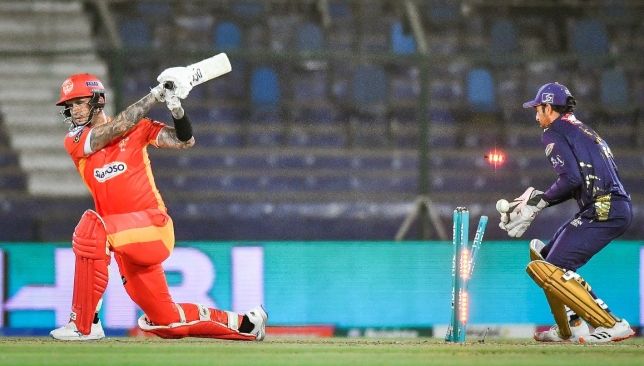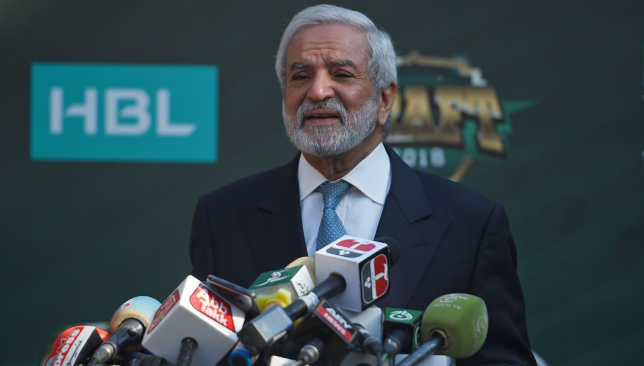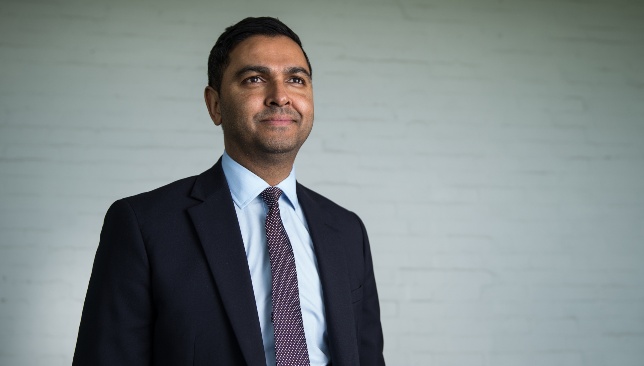
Qui reus est? If Latin was the national language in Pakistan this is what most in the cricket fraternity would be currently hearing right now: “Who is to blame?” for the current Pakistan Super League T20 tournament coming to an unexpected end after just 14 matches due to some players contracting Covid-19.
A short history lesson on the country’s flagship tournament, possibly the second most watched T20 tournament in the world after the IPL itself. It started in 2016, played solely in the desert oasis of the United Arab Emirates, initially with five teams and then climbing to six. These are not regional association teams; each is owned by investors, with a regional element to their names.
In 2017 the final was played in Lahore and then in 2018 the semi-finals and final were held in Pakistan. This was an initial step in eventually holding the full tournament back in the cricket-starved country, slowly progressing over the next two years to the tournament being held in its entirety in Pakistan from 2020.
Then came the pandemic, which was declared in March 2020 by the World Health Organisation – halfway through the PSL tournament. While most sports stopped immediately, the PCB decided to carry on without any spectators, though this effort did not last too long; when a foreign player started to show symptoms, the tournament came to a halt.
📢 HBL PSL 6 POSTPONED
— PakistanSuperLeague (@thePSLt20) March 4, 2021
PCB Chief Executive Wasim Khan, Director – Commercial and Babar Hamid, will hold a media conference at the National Stadium at 3pm to provide further updates.
Read more:https://t.co/GM68WWmnT8
#HBLPSL6
The remainder of the matches were played in a spectator-less environment in November of the same year, once much more was known about coronavirus and the complexities of playing sport in isolated bio-secure bubbles. Incongruously over 200 games were played during the Pakistan domestic season in bio-secure environments, though not without incidents – the occasional breach of the rules or positive case slipping through on more than one occasion.
Did this create a false sense of security, that everything was good to go when planning for further events? It certainly appears that way. Pakistan have been playing internationally since July, with tours to both England and New Zealand, each time in very strict bio-secure environments, and having to adhere to stringent quarantine periods allowing for no case to pass detection – up until 14 days after exposure – as well as having international teams tour Pakistan in that period. Complacency during the best of times is a recipe for disaster; in a pandemic the results could be catastrophic.
The question arises where did PCB go wrong in their handling of the logistics of this tournament?
First and foremost – where are PCB getting the ‘three-day’ quarantine advice from? No other country has less than 14 days in a strict and secure environment. It certainly doesn’t comply with any WHO recommendations.
Where is the evidence that if someone may have been exposed or enters the country they only need to quarantine for three days, and then be allowed to mix freely with others?
The virus can take up to 14 days to appear, and may not be detectable on tests, even 7 days after initial exposure. I mentioned this on various social media platforms prior to the South African tour of Pakistan. Why wasn’t this based on the New Zealand quarantine model of 14 days.
There have been breaches from the start with some franchise players nonchalantly meeting people outside of the bubble. If the PCB had come down hard from the start with an iron fist and set a precedent, then any further breaches might have been avoided. Not only did they allow unnecessary exemptions, they then contrived in setting a dangerous precedent, as well as causing natural concern for many, especially when others see that rules are different for some, above all then creating the potential for exposure.
PCB offers covid vaccine to all participants in Pakistan Super League. Good, but doesn’t it take 3-4 weeks for vaccine to work, @SamaraAfzal, @DrNaumanNiaz ?
— Umar Farooq Kalson (@kalson) March 3, 2021
Having families stay with players – was this right or wrong? There are arguments for and against. Keeping players in bio-secure environments was having a detrimental effect on mental health. It’s an unprecedented situation, so there were no templates to follow. Players were allowed to feel a ‘faux normal’ in difficult circumstances.
There were a handful of birthday parties. But having spoken with people in the bubble, they were just cake-cutting ceremonies, nothing more, all done within the confines of what they were all under the impression was a bio-secure bubble. No one was aware if there had been possible cases, nobody was told to isolate. This isn’t the fault of the players or their families. If there had been, as is now suspected, a potential case, then the medical staff may have been negligent when it came to risk-assessment of any individual, or applying stricter and tighter protocols inside the hotel.
Meeting indoors is riskier than outside, poor ventilation will nurture the virus. Without delving into the complexities of virus transmission, nothing can be deemed 100 per cent safe.
There was also talk of potentially offering vaccination to the players. Were the PCB medical panel not aware how vaccines work? Protection doesn’t start till at least two to three weeks after being inoculated. This would have still have left them open to exposure, and would have just instilled a false sense of security. And not forgetting that most approved Covid vaccines require a second dose to provide full protection.
One major aspect that somehow defies logic, with this being the PCB’s flagship event, is why wasn’t a hotel fully booked for just the teams and their associates instead of sealing off half of a hotel. Risk management seems to have been quite minimal, with potential for exposure being fairly prevalent in most circumstances.
Then there is the case of franchise owners allegedly going in and out of the bubble, two specifically blaming everything on the board, when in actuality they had been seen to break the protocols themselves, mingling with TV or social media influencers at pitch side – which should have been a secured area.

One owner even has a TV channel in which there are game shows, including one where cricket is played in a very small and confined indoor space; where social distancing and other forms of prevention are non-existent, apart from some token hand sanitiser. Some Pakistan players regularly appear on game shows featured on this channel. So this is somewhat hypocritical, especially when history dictates otherwise.
The issue now is that players and staff from abroad will have lost faith and confidence with what they have seen and witnessed, and will no doubt pass on the message to others. Wasim Khan, the PCB chief executive, has promised an independent investigation, outside of any PCB interference.
Another question that arises, is why each side wasn’t allowed to provide its own independent medical staff. Surely if you’re paying millions for players, why not also invest in the best medical staff instead of relying on a single point of reference, which seems to have lacked basic knowledge of Covid prevention or testing.
Why not use an external third-party to implement all the safety protocols. This was obviously way too much for the board and the franchises themselves to handle; especially when trying to handle so many numbers in the bubble. Again, going back to one of my previous points acquiring medical experts who have had experience in pandemic protocols, and have successfully implemented them, could have been an option.
There have been so many sports that have successfully restarted during the pandemic – all with adequate safety and prevention measures, the PCB could surely have interacted with representatives from these sports.
One outstanding example has been ‘Project Restart’ in English football’s Premier League. I have spoken with and had many discussions in the past about Covid protocols in the Premier League with Dr Zafar Iqbal – chairman of the Premier League doctors’ group as well a member of the UK government’s working group for sports – and on how he has been heavily involved in helping set them up. His findings are now widely published especially on how they work. Examples of his recommendations which have been put to use in the Premiership are:
∙ No bubbles in the premier league,
∙ Players go home after training,
∙ Are stringently tested twice a week,
∙ Dedicated security zones at both the training grounds and the stadium, with only those who have had negative tests being allowed in, as they’re given a clinical passport.

Wasim Khan, who has done a highly commendable job in restoring the Pakistan cricket brand, seems to have been somewhat unfairly and quite prematurely thrown under the bus, though the disappearance of Ehsan Mani is a mystery. As Wasim rightly pointed out in a press conference, this isn’t a blame game. Though the Pakistani media will no doubt demand a scapegoat, Wasim isn’t your man, nor should he be. Yes, he was part of a collective group, but then you’re only as good as those you work with.
Pakistan will do well to view how other nations have coped with Covid and its uneasy co-existence with sport, and will hopefully learn from it. The loss financially will also hit Pakistan hard. With foreign broadcasters such as Sky investing for the long term, things had started to look quite rosy, though roses don’t grow without thorns.
That doesn’t mean the efforts and hard work of the PCB and franchises have been in vain. Despite all the setbacks, the PCB will be only too aware of how it will be viewed after this. Any investigation must be thorough, decisive and above all independent. Even as I write, two independent infectious disease experts have been appointed to investigate the bio-secure protocols, as well as the by-laws that were put in place during the tournament.
Hopefully, Pakistan will hopefully recover from this setback. Going forward, Pakistan cricket should adhere to the Latin phrase of “operibus anteire” (Lead with action) .